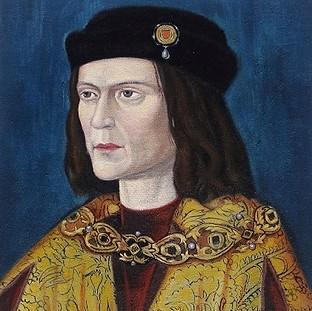Not really. it was thought that the Battle of Bosworth took place at a site in Leicestershire called Ambion Hill. There is a battlefield heritage center there. Like Glastonbury being the burial place of King Arthur, sometimes the English just pick a spot.
But in 2005 the Leicester City Council brought in Dr. Glenn Foard to try and find the correct spot. Since the burial site of Richard III has been located, the time is right to document his last battle as well and so Foard and Professor Anne Curry have a book in press on that fateful battle in 1485.
By analyzing documentary evidence, reconstructing the historic terrain and undertaking systematic archaeological surveys using metal detectors, Foard deduced that Bosworth was not fought on the heights of Ambion Hill but two miles away in low lying, ground, close to a Roman Road and beside a marsh known later as Fen Hole.

1485: Battle of Bosworth 3-D miniature diorama. Credit and link: University of Huddersfield.
"Richard III might have chosen this terrain because he was an enthusiast for artillery and on this flat ground it could be used to best effect. But Henry’s troops simply maneuvered, behind the protection of the marsh, to attack the flank of Richard’s army and so avoid the heavy artillery fire," he said.
Other finds included the clinching evidence of a silver-gilt badge in the shape of a boar, the emblem of the doomed king. It would almost certainly have been worn by one of the knights who rode with Richard to his death on his fateful last cavalry attack.

Richard III. Popular among no one in England except archaeologists. Credit and link: Braintree and Witham Times
The new book ("Bosworth 1485: A Battlefield Rediscovered" published by Oxbow) describes the archaeological project and its findings, including conclusions about the place where Richard III perished. The book will be launched on Sunday, 18 August when the two authors will give a talk at the Bosworth Battlefield Heritage Centre during a major weekend of re-enactments and special events.
Richard III is far more popular in death than he ever was in life.






Comments